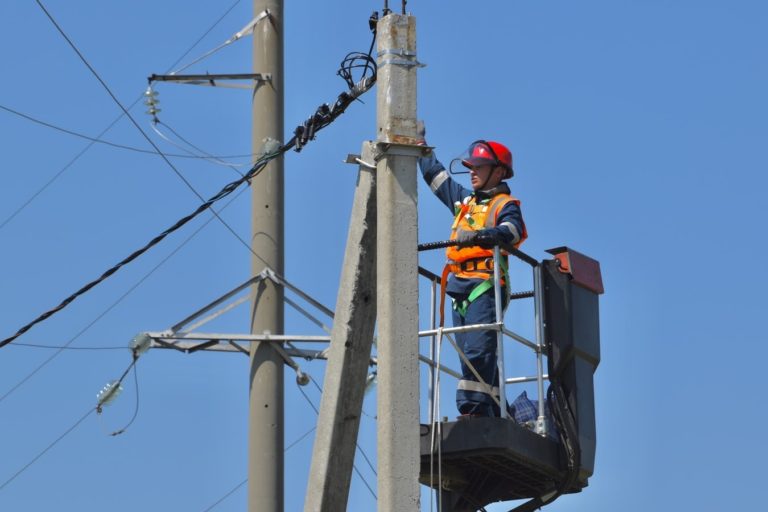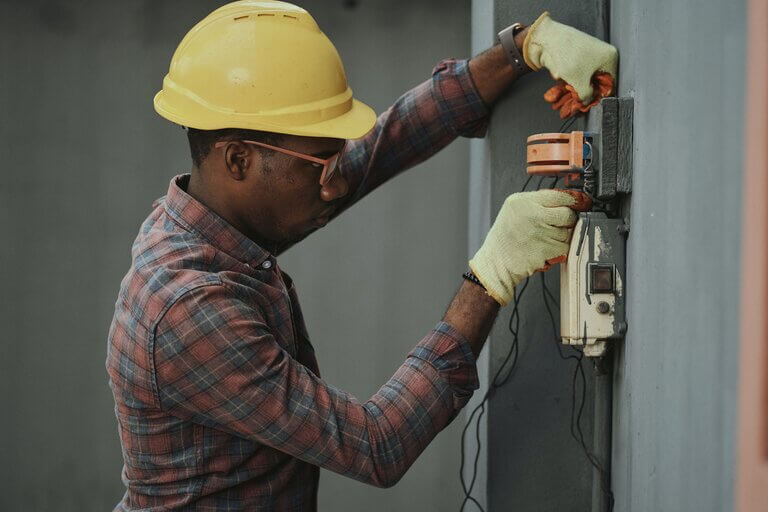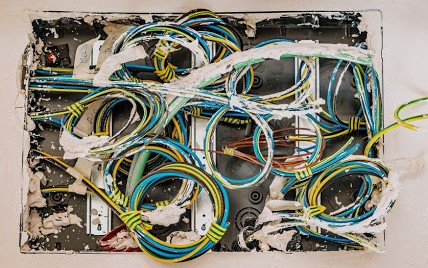

Electricians are in huge demand all over the United Kingdom. Their demand curve is drastically increasing every year, and this profession has 0 or meagre unemployment rates. This article will give you a clear understanding of how to become an electrician without an apprenticeship in the UK. It will also help you develop a solid knowledge of the job structure and pay scales.
Even though this blog mainly talks about how to become an electrician without an apprenticeship in the UK, but you will get an obvious idea of this profession, its challenges and the benefits associated while reading it.
Table of Contents
Why You Should Become An Electrician In The UK
In April 2019, a labour market report was published where it was mentioned that the UK has a scarcity of qualified electricians. The report also says that this scarcity will continue till past 2022. Therefore, it indicates that the UK needs qualified electricians!
Apart from their increasing demand, electricians are also the highest-paid trade workers in the UK.
There are many perks of being a self-employed electrician. You would be your boss, and you would have the flexibility to choose work as they come and wouldn’t have a manager on top of your head 24/7!
Being self-employed also means that you don’t have to get taxed on your income when every pay cheque comes in. Even though you will need to pay tax if you earn more than £12750 a year.

Also, you can claim a large amount of money for allowance and business-related expenses from the government online. Work clothes, employee dividends, depreciation costs for types of machinery, travel allowances are among the few expenses that can be claimed. Your local accountant would be able to assist you with that.
If you aren’t fully convinced of why should you become an electrician yet, read how much an electrician makes.
How Much Does An Electrician Make in the UK?
According to the job recruitment site indeed, electricians average base salary is £36,174 per year in 2023. The figure has remained steady throughout the past years; they have remained the highest-paid trade workers all over the UK.
However, if an electrician is self-employed and does contractual jobs, the figures can either rise or fall. It depends on their client base and the size of their business.
As an average electrician, you can charge a minimum of £400 – £700 for one particular job, which might even take less than 15-30 minutes to complete.
But, experienced self-employed electricians earn a lump sum of money annually. It ranges from £49000 to £90000 a year, depending on their popularity and the area. For example, if the task is in London or Southeastern suburbs, the prices of an electrician’s charges would be a lot higher than in other areas.
The amount of money an electrician makes after 1–3 days of hard work, people earn that money by working long hours in corporate offices, retail stores or warehouses, slaving their day.
Are you an aspiring electrician who is having difficulties finding an apprenticeship?
Are you someone who wants to explore their options on how to become an electrician without apprenticeship in UK?
If yes, then this article is especially for you.
Apprenticeship means that you will need to work under another licensed electrician for an extended period to get professional work experience. That can be around 4 to 5 years. After your apprenticeship ends, you will get a licence to practice as an electrician. You have to do your best to please your employer and a shallow pay scale during this time. Some employers would just pay you even £3-4 an hour.

Some employees have a terrible reputation of mistreating these new electricians who work under them during their apprenticeship. Apart from paying them significantly less, they would give them extra workload. The apprentices usually don’t get any employee benefits. Because they know that these people need them. And if they leave the job, they will have issues getting their license to practice.
Due to these harsh realities, most aspiring electricians don’t prefer the apprenticeship option. And they look for other ways to become an electrician.
Therefore, most of them are in the dilemma of working as an electrician with or without an apprenticeship. They are sceptical of what steps to take and how to become an electrician without apprenticeship in UK.
To help resolve this dilemma, here are a few ways on how to become an electrician without apprenticeship in UK.
Qualifications Required to Become an Electrician in the UK Without Apprenticeship
In the UK, becoming an electrician without an apprenticeship means pursuing specific qualifications to ensure you’re competent and can work safely. Here’s a detailed look at the qualifications required:
Get Professional Training
It might sound quite similar to an apprenticeship. But training schools provide intensive hands-on training on all aspects of your profession.
You have to pay them a certain amount of money to complete the training and get a professional certificate. But several benefits are also attached.
First of all, there would be no boss. Your mentors would train you with adequate training supplies and intensive professional knowledge. These mentors would be highly experienced in the field. So, you can ask them whatever question you have without any hesitation.
Secondly, time is flexible. So you can apply for a leave or time off easily, which is way harder to get when working under an apprentice.
Lastly, you would be able to complete your training in a much lesser amount of time. Time duration ranges from 6 weeks to 2 years, depending on the programs you choose to get trained on.
It means that you do not have to work full-time hours. It will give you added flexibility to get another casual, high paying job to run your expenses.
Therefore, with professional certification and training, you can become an electrician without apprenticeship. Depending on your interest level, you can master your skills even more in a specific area. For instance, an auto electrician, building electrician and so on.
ECS (Electrotechnical Certification Scheme) Card
While not a qualification in the traditional sense, the ECS card is a form of ID that proves your qualifications and competence as an electrician. To work on construction sites or in many professional settings, having an ECS card is often a requirement.
Short Courses and Specialist Training
Incorporating some short courses and specialist training like the basic electricity course, online courses and CPD (Continuing Professional Development) courses can help kick start your journey as an Electrician in the UK or boost your existing career.
Basic Electricity Course
For those new to the field or looking to refresh their foundational knowledge, a basic electricity course is invaluable. It covers the principles of electricity, understanding of circuits, and the fundamental laws governing electrical energy. This foundational knowledge is crucial before diving into more advanced topics.
PAT Testing (Portable Appliance Testing)
Portable Appliance Testing (PAT) is a crucial process in ensuring the safety of electrical appliances. It involves the examination of electrical equipment and devices to confirm they are safe to use. This procedure reduces the risk of electrical shocks and other hazards, especially in workplaces. To cater to the growing demand for qualified testers, PAT testing courses have become popular. These courses equip participants with the knowledge and skills to efficiently inspect and test portable electrical devices to ensure they’re safe to use.
CPD Courses
Continuing Professional Development (CPD) courses are essential for electricians looking to stay updated with the latest industry standards, technologies, and best practices. These courses can range from updates on wiring regulations to new installation techniques or emerging technologies in the electrical field. Professional bodies often offer or recommend CPD courses to their members.
Incorporating these courses into your training regimen broadens your skill set and keeps you updated with the evolving electrical industry. It’s essential to ensure that any course or training undertaken is recognised and aligns with your career goals.
What are the Skills Required to Become an Electrician in the UK?
Becoming an electrician involves a combination of technical, practical, and soft skills. Here’s a detailed breakdown:
Practical Skills
1. Use of Tools
Electricians use a variety of tools, from basic hand tools like screwdrivers and pliers to advanced electronic devices for testing circuits. Proficiency with these tools is essential.
2. Physical Fitness
The job often involves physical tasks such as climbing ladders, crawling in tight spaces, and lifting heavy objects. Good physical condition helps in performing these tasks effectively.
3. Safety Protocols
Working with electricity is inherently dangerous. Electricians must know and consistently follow safety procedures to protect themselves and others.
4. Continuous Learning
The electrical field is ever-evolving with new technologies and methods. Electricians need to stay updated through continuous training and certifications.
Skills Required to Become An Electrician in the UK
Becoming an electrician involves a combination of technical, practical, and soft skills. Here’s a detailed breakdown:
Technical Skills
1. Circuitry Understanding:
At the heart of being an electrician is understanding how electrical circuits work. This includes knowledge of series and parallel circuits, voltage, current, and resistance.
2. Reading Blueprints
Electricians often need to read and interpret blueprints or technical diagrams of electrical systems. This ensures that installations and repairs align with the design and safety standards.
3. Troubleshooting
When electrical systems fail, electricians must diagnose the problem and determine the best solution. This requires a systematic approach to identify and rectify faults.

4. Installation Skills
From wiring a new house to setting up electrical systems in commercial buildings, electricians should know how to install various components safely and efficiently.
5. Knowledge of Safety Codes
Electricians must be familiar with national and local electrical codes to ensure that installations and repairs meet the required safety standards.
Practical Skills
1. Use of Tools
Electricians use a variety of tools, from basic hand tools like screwdrivers and pliers to advanced electronic devices for testing circuits. Proficiency with these tools is essential.
2. Physical Fitness
The job often involves physical tasks such as climbing ladders, crawling in tight spaces, and lifting heavy objects. Good physical condition helps in performing these tasks effectively.
3. Safety Protocols
Working with electricity is inherently dangerous. Electricians must know and consistently follow safety procedures to protect themselves and others.
4. Continuous Learning
The electrical field is ever-evolving with new technologies and methods. Electricians need to stay updated through continuous training and certifications.
Soft Skills
1. Problem-solving:
Electricians often encounter unexpected challenges that require creative solutions. The ability to think critically and solve problems on the spot is crucial.
2. Communication
Electricians frequently interact with clients, other tradespeople, and team members. Clear communication ensures that the job is done right and that any issues or changes are promptly addressed.
3. Attention to Detail
Overlooking minor details can lead to significant problems in electrical work. Being meticulous and thorough is vital.
4. Customer Service
Especially for electricians who work directly with clients, providing excellent customer service can lead to repeat business and referrals.
5. Time Management
Electricians often juggle multiple tasks or projects. Efficiently managing time ensures that work is completed on schedule and meets client expectations.
While the technical and practical aspects of the job are fundamental, soft skills play an equally important role in an electrician’s success. Balancing all these skills ensures safety, efficiency, and customer satisfaction in the electrical profession.

Challenges: How Hard It Is To Become An Electrician?
Every occupation has its pros and cons attached. One of the significant challenges as an electrician is the level of dangerousness in doing electrical work. Electricians are exposed to open wires and cables. They have to also stand for long hours and climb up tall ladders. These duties expose to body-related injuries such as trips and falls, burns, electric shocks, and many more.
Moreover, the level of these injuries ranges from very mild to extremely severe. Electricians have to deal with two types of issues while working:
-
Fixing an electrical problem and
- The external safety factors that would affect their ability to reinstate the problem.
The external safety issues can be hazardous at times. One of the most challenging issues is they might need to touch open wires where electricity is still flowing. It can lead to fatal results and big electric shocks.
Therefore, they need to keep in mind that it is likely to face any challenges at work. This mindset that they need to prepare for their career can put a strain on their mental health. Especially when they see a fellow electrician suffering from health issues caused while working.
One might question himself for this career pathway in the first place, considering how hard it is to become an electrician.
On top of all these, it is pretty challenging to find a suitable apprenticeship. It will take you around 4/ 5 years to finish the hours necessary to complete the apprenticeship and get the certificate.
This whole process can be very draining for an individual. It might take away a fair bit of time from your growing years as a professional. So young professionals look for more ways on how to become an electrician without an apprenticeship.
Conclusion
Every profession has its own set of pros and cons. Without challenges and hardships, nothing can outshine that much in front of the worlds.
Also, these challenges are faced mainly by young professionals in both white-collar job and blue-collar job. But, after you gain experience and become a master in what you do, the demand curve will start rising rapidly.
The challenges and the benefits of an electrician go hand in hand. Therefore, it entirely depends on you and your life goals – whether to choose this as an occupation. Work harder to become a very skilled and successful electrician in the future.
Read More Articles on Electrician Career and Safety
- Available Courses
- Law9
- IT & Software216
- Design26
- Training6
- Accounting & Finance Primary44
- Teaching & Academics Primary34
- Teaching20
- Quality Licence Scheme Endorsed152
- Healthcare167
- Animal care10
- Job Ready Programme39
- Charity & Non-Profit Courses28
- HR & Leadership2
- Administration & Office Skills2
- Mandatory Training36
- Health and Safety503
- Marketing35
- Career Bundles199
- Construction56
- Electronics31
- Hospitality28
- Health and Social Care289
- Child Psychology40
- Management403
- Business Skills290
- First Aid73
- Employability279
- Safeguarding79
- Food Hygiene113
- Personal Development1490
 Food Hygiene
Food Hygiene Health & Safety
Health & Safety Safeguarding
Safeguarding First Aid
First Aid Business Skills
Business Skills Personal Development
Personal Development






